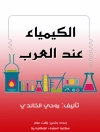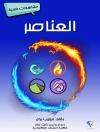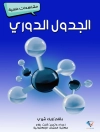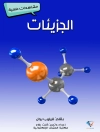Toxicity testing is used to assess the safety or hazards presented by substances such as industrial chemicals, consumer products, and pharmaceuticals. At present, many methods involve laboratory animals. Alternative procedures, some involving human cell-based technologies, are now being developed which reduce, refine, or replace animal usage and minimize the pain and distress caused. These new tests must protect public health and the environment at least as well as currently accepted methods. This book describes the ever-expanding ‘toolbox’ of methods available to assess toxicity. Such techniques often result from our growing understanding of the biochemical and cellular pathways that mediate toxicity mechanisms. This permits evaluations of information generated from several sources to generate a ‘weight of evidence’. By combining in silico, in vitro, and ex vivo methods with technologies that rely on biochemical- and cell-based in vitro assays, toxicologists are developing mechanistically based alternatives to live animal experimentation. This text also explores the complexities associated with adequate validation, and the assessment of test reliability and relevance. It provides an essential reference source for postgraduates, academics and industrialists working in this rapidly changing area.
Jadual kandungan
Introduction;The 3R’s in Toxicity Testing – From Russell and Birch to 21st Century Toxicology; Regulatory Safety Testing – National and International Requirements; Efforts Towards International Harmonization of Acceptable Alternatives; Refinement Alternatives – Minimizing Pain and Distress in In Vivo Toxicity Testing; In Vitro Toxicity Testing – The Basics; Using Stem Cells in Toxicity Testing; Using Computers Instead of Cells – In Silico Approaches to Toxicity Testing; Acute Safety Testing; Acute Systemic Toxicity – Oral, Dermal, and Inhalation Exposures;Dermal Corrosivity and Irritation Testing; Ocular Corrosivity and Irritation Testing; Skin Sensitization Testing; Integrated Approaches to Acute Safety Testing; Endocrine Disruptors; In Vitro Receptor Binding Assays; In Vitro Receptor Transactivation Assays; Non-mamalian Approaches to Identifying Endocrine Active Substances; Subchronic and Chronic Toxicity Testing; Carcinogenicity – Genetic Toxicity Testing and Beyond; Reproductive and Developmental Toxicity Testing; Immunotoxicity Testing; Application of New Technologies; High Throughput Approaches to Toxicity Testing; Nanotechnology – New Challenges in Toxicity Testing
Mengenai Pengarang
Michael D. Waters, holds a Ph.D. in Biochemistry from the University of North Carolina School of Medicine at Chapel Hill and a B.S. in Pre-medicine (Chemistry and Biology) from Davidson College. He is a former government scientist with more than 35 years of experience in research and research management positions at EPA and NIH/NIEHS and six years of private sector experience as Chief Scientific Officer at Integrated Laboratory Systems, Inc. His research interests have centered on the evaluation of chemically-induced mutations and altered molecular expression in the etiology of genetic disease. He is a widely-published scientist having published well over 100 peer-reviewed in authoritative international scientific journals. He has edited Mutation Research-Reviews for nearly 20 years and has held adjunct professorships at both the University of North Carolina and at Duke University for many years. He served as President of both the Environmental Mutagen Society and the International Association of Environmental Mutagen Societies (now the Environmental Mutagenesis and Genomics Society and the International Association of Environmental Mutagenesis and Genomics Societies, with more than seven thousand members worldwide). The databases he has developed and a number of his publications are recognized as important advances that have significantly impacted the fields of genetic toxicology, carcinogenesis, toxicogenomics, and risk assessment.












